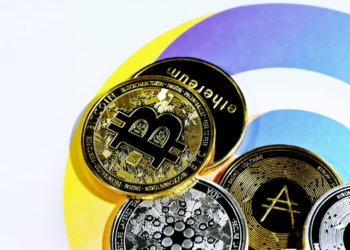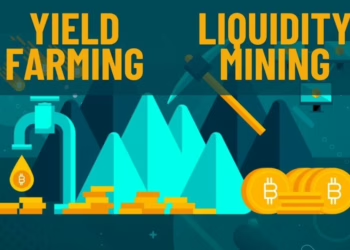Bitcoin, the first privately owned, globally accessible digital currency, was an experiment that grew in popularity and gained many supporters despite widespread skepticism. Apart from Bitcoin, more than 1,500 other virtual currencies exist today. However, only a small percentage of them experience significant market growth and capitalization. The most popular of them is still Bitcoin.
Economists, as well as monetary and regulatory authorities, initially paid little attention to Bitcoin and other digital currencies. Digital currencies were viewed as a specialized phenomenon—a kind of technological folklore—that could vanish at any time. They were primarily analyzed and disseminated by IT professionals. However, things have changed dramatically in recent times. Bitcoin has since become a hot topic of discussion among economists, financial market experts, and even politicians because it continues to grow and gain supporters worldwide.
Nowadays, the public expects public figures to express their opinions.
The rapid growth of the Bitcoin bubble in 2017 and its eventual collapse at the beginning of 2018 fueled this growing interest in digital currencies.
This article comprehensively examines how cryptocurrencies impact the monetary policies of central banks.
How Do Cryptocurrencies Challenge the Monetary Policy of Central Banks?
According to PwC, more than 80% of central banks are currently exploring, testing, or implementing pilot programs for digital currencies. So far, China has blazed the trail among the world’s biggest economies by injecting more than $300 million worth of digital yuan into its economy.
The Bank of Japan, the Federal Reserve, and the European Central Bank are all investigating digital currencies. The Bank of England may issue a “Britcoin” in the future. Sweden may have an electronic currency and become the first cashless country by 2023.
Money already moves through electronic means all across the world. However, central bank digital currencies, or CBDCs, would represent a novel type of tool comparable to the digital tokens currently in use in private networks. Individuals and organizations could transact in CBDCs via apps on a digital wallet. Similar to deposits kept at a commercial bank, deposits in CBDCs would be a central bank’s responsibility and may accrue interest. Also, CBDCs could be stored on decentralized ledgers and could be programmed, tracked, and moved around the world more easily than they are now.
As new cryptocurrencies and payment systems emerge, central banks are under increasing pressure to develop their own digital equivalents. Bitcoin, despite its popularity, is not the biggest threat. It is far more volatile than the Venezuelan bolivar. Because the underlying blockchain network is somewhat slow, many investors prefer to store it rather than use it.
However, the overall bitcoin market is approaching a tipping point. Stablecoins are a type of non-governmental digital cryptocurrency pegged at a fixed exchange rate to a fiat currency and are of particular interest to central banks.
Stablecoins are becoming increasingly popular for both domestic and international transactions, particularly in emerging economies. Stablecoins will be added to social media and e-commerce platforms by technology and financial companies.
The increasing fragmentation of the financial and payment systems is the driving force behind CBDCs. People may keep Bitcoin as a way to save money in the coming years and use stablecoins pegged to euros or dollars to pay for things.
Of course, the dollar won’t vanish because it’s used to price everything and is stored in huge reserves all around the world. But stablecoins and cryptocurrencies are now a greater threat to any fiat currency. A hack or collapse of a stablecoin might send shockwaves as people and businesses struggle to recover their money, causing a bank run or financial panic.
Furthermore, the widespread use of stablecoins could destabilize the markets because they aren’t backed by government assets. Since they are issued by banks or other private companies, they also carry credit and collateral risks.
As commerce shifts to digital coins, other cryptocurrencies, and peer-to-peer networks, governments risk losing control over their monetary policies—instruments used by central banks to monitor inflation and financial stability.
Central banks must create digital currencies in order to maintain monetary sovereignty. The Fed, for example, controls the amount of money by buying and selling securities that add to or subtract from the monetary base. However, you have a serious problem if no one spends your money.
Objectively speaking, it is not only about playing defense. Some of the economic and social benefits that CBDC proponents claim include the ability to reach those who are currently “unbanked” and the reduction of transaction fees for consumers and businesses. Other illegal acts, such as money laundering that are now funded with cash or cryptocurrencies, may also be reduced.
CBDCs could also help to level the playing field because central banks are powerless to stop the rise of digital money created by private companies.
China’s pilot project began in 2020 and was a wake-up call even though CBDCs have been discussed in academia for years. According to Morgan Stanley, the standard renminbi currently accounts for 2.5 percent of global payments, far less than China’s 13% export share of the world market. According to analysts, China wants to use its digital renminbi for international trade and cross-border transactions.
Governments should focus their economic strategies more effectively. Digital currency might be used to deposit stimulus checks into e-wallets. This could help avoid checking accounts or applications that impose fees. It may also facilitate faster distribution of funds and real-time tracking of their use. Digital currency is also programmable. In three months, stimulus checks in CBDC might disappear from a user’s digital wallet, encouraging them to spend the money and boosting the economy.
According to Bank of England research, a digital dollar could permanently increase U.S. output by 3% a year if it were widely used. That may be a stretch, but central banks, such as the Fed, are developing systems that will enable banks to settle retail transactions almost instantly, around the clock, and for very little money. CBDCs could integrate into that infrastructure, reducing transaction costs and accelerating trade. This could minimize economic conflict while boosting economic output.
Commercial banks also face difficulties. Commercial and central banks may compete for the same deposits, reducing interest revenue on assets and increasing funding costs for banks. Many solutions, such as paying banks for their services in CBDCs, address these issues.
Deposit rates would need to be competitive to prevent central banks from siphoning deposits.
Even in a two-tiered financial system, commercial banks may lose deposits, forcing them to borrow money from debt or stock markets, which are less reliable and more expensive.
The Impact of Volatile Cryptocurrency Prices on Central Banks
The most direct way to manage inflation and the relative worth of a currency is to set the interest rate offered to commercial banks for their deposits and borrowings from the central bank.
This significantly impacts the interest rates that commercial banks offer to their depositors and borrowers, which in turn directly influences financial habits such as spending and saving.
Some central banks set explicit inflation targets; the Bank of Canada, for instance, has done so since 1991 and updates it every five years in coordination with the federal government. By establishing a fixed exchange rate between their fiat currency and another, such as the USD or EUR, some governments, and central banks bind their economy to another economy. In any case, controlling the value of the currency is necessary to limit inflation.
A central bank’s ability to manage a fiat currency is heavily dependent on the sovereignty of the country in which it is based, as well as on the number of tax-paying citizens who keep the country’s money, banking, and government systems running.
A central bank that does not control the value of the currency used by its population will be unable to regulate inflation or ensure the security and stability of its economic and financial institutions. The interest rates in any country have little effect on cryptocurrencies, especially when compared to all the other factors that influence their prices.
If the individuals responsible for determining the value and distribution of the currency are not within a central bank’s purview, then such a central bank has effectively relinquished control of monetary policy. Individuals and businesses will lose trust in the system, causing the economy to suffer from rapid inflation or deflation.
In Conclusion
- Central banks cannot afford to ignore digital currencies as they integrate into social media, gaming, and e-commerce platforms and compete for our wallets and minds. Imagine a world where we interact with digital versions of our friends while shopping, playing video games, and living in augmented reality. Will we even consider using dollars at such a time? The competition between currencies will become more pronounced if we have these augmented realities.
- Regulators must be able to keep track of the risks that crypto ecosystems pose as they rapidly evolve. They can accomplish this by quickly filling in data gaps.
- Given the growing use of crypto assets globally, governments should collaborate more effectively across borders to reduce the risk of regulatory arbitrage and ensure proper oversight and regulation.
If you would like to read more articles like this, visit DeFi Planet and follow us on Twitter, LinkedIn, Facebook, and Instagram.
“Take control of your crypto portfolio with MARKETS PRO, DeFi Planet’s suite of analytics tools.”




















